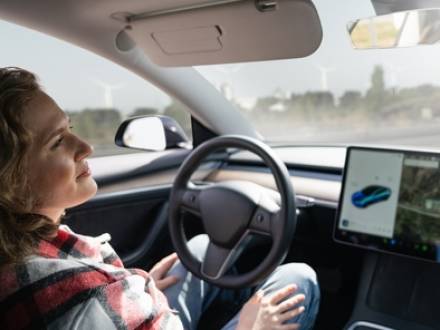Maryland’s Next DUI Frontier: Remote or Self-Driving Cars
 As self-driving and remotely operated vehicles become increasingly common, Maryland law faces a question that was likely never imagined. Can a person be charged with DUI if he or she was not physically driving the car? Although technologies like Tesla’s Autopilot and remote car apps promise safety and convenience, they also blur the definitions under the law (Maryland Transportation Article Section 21-902) of "operating" a vehicle.
As self-driving and remotely operated vehicles become increasingly common, Maryland law faces a question that was likely never imagined. Can a person be charged with DUI if he or she was not physically driving the car? Although technologies like Tesla’s Autopilot and remote car apps promise safety and convenience, they also blur the definitions under the law (Maryland Transportation Article Section 21-902) of "operating" a vehicle.
While prosecutors continue to test whether "actual physical control" applies to drivers who engage automation features or start a car remotely, defense attorneys will be forced to find ways to defend drivers who were not actually driving, yet have been charged with DUI. If you should find yourself in a situation where you were not actually driving your self-driving car, yet you are being charged with DUI, consulting with an experienced Montgomery County, MD DUI lawyer should be your very first step.
Actual Physical Control: How the Digital Age is Blurring Those Lines
It is illegal under Maryland law to drive or attempt to drive while impaired or under the influence. The term "attempt to drive" has been broadly interpreted by Maryland Courts; DUI can apply to being in "actual physical control" of a vehicle even when the car is not moving. In other words, a driver could have pulled off the road to "sleep it off."
Even though the car is not running, if the driver is in the front seat and the keys are within his or her reach, this can be considered actual physical control. Yet in a self-driving car or a remote-starting car, those factors may not apply. What if the driver activates Autopilot but is not touching the wheel? What if an impaired driver starts or moves his or her car through a smartphone app? The question becomes whether "control" can exist with no actual physical contact.
Autopilot still requires human supervision, and impairment may negate the driver’s ability to intervene in a crisis, so the driver could still conceivably be charged with DUI. An impaired driver who summons or repositions his or her car through a phone app creates even more of a gray area. Is remote operation considered "driving? If there is a lack of physical presence in the car, along with no immediate public danger, then DUI charges could be a stretch.
How Broadly Does Maryland Interpret "Control" In These Situations?
Even though Maryland has included sleeping in a car, sitting in the driver’s seat with the keys within reach, or idling in a parking lot as "control," in past cases, remote activation could significantly test those limits. While the autopilot scenario is somewhat more straightforward, courts may have a more challenging time proving control in a remote control situation. The only direction the courts could potentially go is to equate remote control operation of a car to "driving by proxy," similar to cases involving drones.
Constitutional Considerations for Remote Control Operation of a Car and DUI
Defense attorneys may argue that the current statute does not provide clear notice that controlling a car remotely while impaired is against the law. The Maryland legislature will likely be compelled to address these issues as autonomous and remotely controlled cars increase in number. In the meantime, defense attorneys can raise the following arguments:
- There was no actual physical control.
- The vehicle’s AI system performed the movement.
- There was no attempt to drive when summoning a vehicle via remote control; it was only being parked.
- The statute was not designed for self-driving or remote control scenarios.
- Expert testimony on how the vehicle’s system functions can be leveraged for a plea deal.
Contact a Silver Spring, MD DUI Lawyer
If you are facing DUI charges involving a self-driving or remote-controlled vehicle, your case requires a defense that is every bit as innovative as these technologies. The prosecutions in these cases will hinge on technical definitions of "control." In any case, you should know that automation does not equal immunity, so take your charges seriously.
A Montgomery County, MD criminal defense attorney from The Law Offices of Gerstenfield & Demirji, PC. is crucial to the best possible outcome. We are available 24/7 and will aggressively defend your charges. Call 301-589-9500 to schedule your free consultation. We speak Arabic and Spanish.














